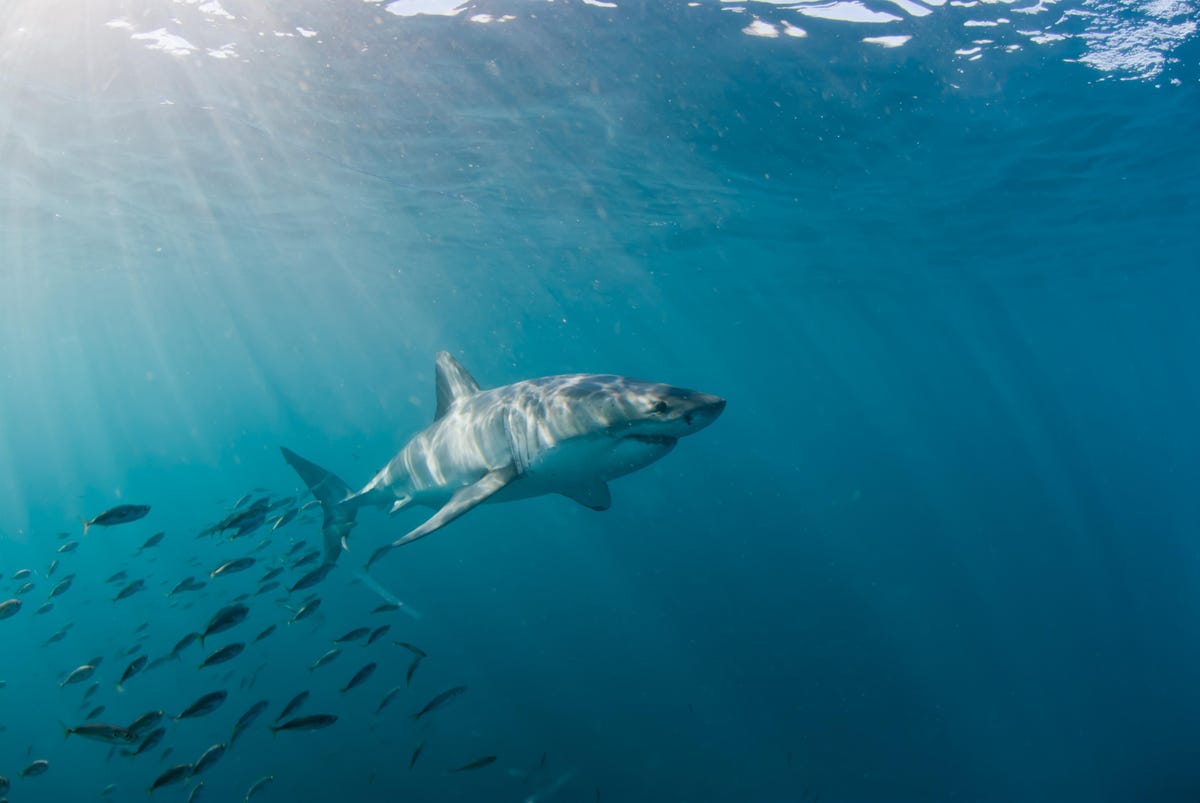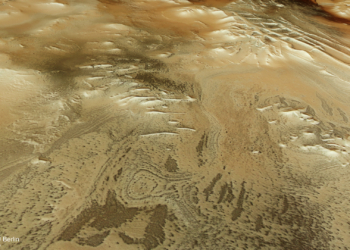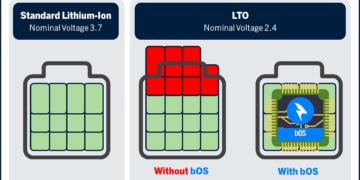The ocean is calm above the surface waves, visibility giving little glimpses of what lies beneath. It’s early morning off the Eyre Peninsula in South Australia, and the two boats have already found their spot and begun making preparations for what lay ahead. They weren’t here for fishing… well, not quite. Instead, the waters of Neptune Islands were known for an oceanic thrill of another sort: great white shark cage diving. Cage-diving with great white sharks (Carcharodon carcharias) is a rare experience and is only available in one place in Australia… here.
Cage-diving with great white sharks is a rare experience and is only available in one place in … [+]
But that isn’t without great controversy.
In spite of South Australia’s White Shark Tour Licensing Policy ensuring white shark tourism at Neptune Islands is environmentally sustainable and socially responsible, many have had complaints about the practice as a whole. Cage diving put many in New Zealand on edge about their safety while in the water, and Mexico recently banned this type of ecotourism activities at Isla Guadalupe, another well-known white shark hotspot. As part of its efforts to ensure that policies and management of white shark tours are evidence-based, the Department of Environment and Water has worked with tour operators and research partners at Flinders University. And there’s good news! Great white shark cage diving is being successfully managed in South Australia, according to new research published in the leading ocean policy journal Marine Policy.
“These businesses and their commitment to sustainable management of shark cage-diving have established Port Lincoln and the Eyre Peninsula as the premier destination for this activity,” says Deputy Premier and Minister for Climate, Environment and Water Susan Close about the latest research. “Thanks to this partnership, the shark cage diving industry continues to prosper in South Australia as it fast becomes the global gold standard for this activity.
Great white shark cage diving is being successfully managed in South Australia, according to new … [+]
When traveling to South Australia’s Neptune Islands, tourists can pick from two shark cage-diving tour companies who operate here – Rodney Fox Shark Expeditions or Calypso Star Charters. Rodney Fox Shark Expeditions was founded by Rodney Fox, who in 1963 was bitten by a great white around the chest and arm but miraculously survived despite the extensive damage. It wasn’t fear he felt from this experience, but instead fascination and a desire for others to encounter the predators up close so that they could see past their false image of “man-eating” beasts. Thus, they became the first and original operators of great white shark cage diving in the world! Calypso Star Charters then joined the waters in 1990, allowing tourists from around the world multiple chances to see these creatures in their natural habitat. Both comparies have played an integral part in the findings according to the scientists, contributing valuable data and logistical support to understand how sharks are responding.
Researchers, led by Professor Charlie Huveneers of Flinders University Marine and Coastal Research Consortium, have collected 20 years of data from tour operators and eight years of scientific monitoring to study the effect of cage diving on shark residency. The assessment was based on research and monitoring conducted near Port Lincoln at the Neptune Islands, where shark residency increased alongside a spike in cage diving activities in the late 2000s, Huveneers explains. “The monitoring program and adaptable management framework were implemented to measure the success of the new rules put in place,” he says. “White shark residency has returned and remained at baseline levels since 2013 showing that adequate regulations and good industry practices can minimise impacts on white sharks and ensure long-term sustainable wildlife tourism.”
Close points out that the success and growth of white shark tourism illustrates the positive … [+]
The Neptune Islands are an internationally significant site for great white sharks, where they regularly forage for seals. The sharks are protected in South Australia under Section 71 of the Fisheries Management Act 2007. The area has become an international focal point for Australian white shark research, with publications and the popular eco-tourism here helping raise awareness about the sharks and their conservation. Close points out that the success and growth of white shark tourism illustrates the positive relationships that can be achieved between nature-based tourism and the environment. Research and monitoring will be continuing, with annual reports providing detailed information about the arrival and departure patterns of white sharks at the Neptune Islands Group (Ron and Valerie Taylor) Marine Park going back to 2014. The 2022 report can be read here.















